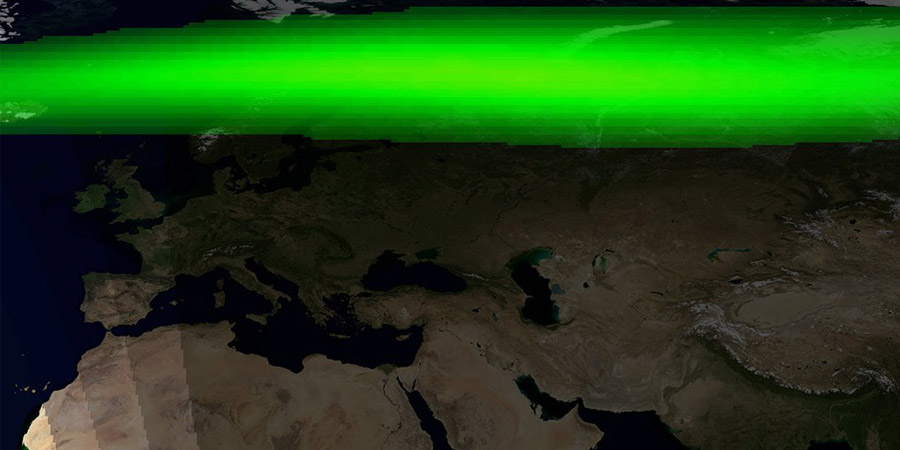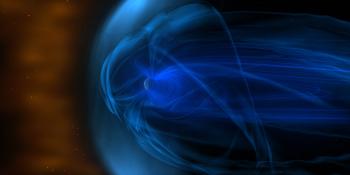Coronal hole stream arrival, new alert bars
Saturday, 6 February 2021 19:06 UTC

We are starting to see some nice geomagnetic activity building up right now as a high speed solar wind stream from a coronal hole is starting to influence our planet. The north-south direction of the IMF (Bz) is mostly southward which will fuel auroral activity at Earth. Active geomagnetic conditions (Kp4) are likely in the hours ahead.
New alerts bars
Great news for high latitude sky watchers yes but that isn't the only news we got for you today.
We are rolling out a new type of alert bar... or should we say bars... We have removed our main alert bar that stated "Current data suggest that it is not possible to see aurora now at middle latitudes". The main reason for this is that it wasn't very accurate as the middle latitude region is pretty broad. It was a legacy from ancient times. We have replaced it with warnings for a huge amount of cities around the world... not only locations at the middle latitudes, but also the high latitudes AND the low latitudes (in case we get one hell of a storm during SolarCycle 25). We rank the chance to see aurora at specified locations low, moderate or high within the low/middle/high latitude region. For anyone not knowing which region they are located, we will update our help article in the very near future as to which region (low, middle, high latitude) your location belongs to.
So what's under the hood? Our calculation method is new but heavily relies on the OVATION model. The system also takes into account if it is dark enough at the programmed locations to see aurora. We did a lot of testing behind the scenes during the last months to dial in the algorithms to the best of our ability but we might have to tweak the system a bit during stronger storms for the most accurate results as we haven't had many strong geomagnetic storms to really test the new system. We hope you enjoy these new alerts bars and thank you for your continued support as well as NOAA for providing the data we need! This should be a great tool for beginners to get an idea if there is a chance to see aurora at their location we think!

Thank you for reading this article! Did you have any trouble with the technical terms used in this article? Our help section is the place to be where you can find in-depth articles, a FAQ and a list with common abbreviations. Still puzzled? Just post on our forum where we will help you the best we can!
Latest news
Latest forum messages
Support SpaceWeatherLive.com!
A lot of people come to SpaceWeatherLive to follow the Sun's activity or if there is aurora to be seen, but with more traffic comes higher server costs. Consider a donation if you enjoy SpaceWeatherLive so we can keep the website online!

Space weather facts
| Last X-flare | 2025/03/28 | X1.1 |
| Last M-flare | 2025/04/29 | M1.6 |
| Last geomagnetic storm | 2025/04/21 | Kp5+ (G1) |
| Spotless days | |
|---|---|
| Last spotless day | 2022/06/08 |
| Monthly mean Sunspot Number | |
|---|---|
| March 2025 | 134.2 -20.4 |
| April 2025 | 126.5 -7.7 |
| Last 30 days | 127.3 +0.3 |


